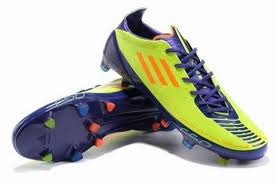
Messi has won five
La Liga titles and three
Champions League titles. After scoring 12 goals in the
2010–11 Champions League, Messi became only the third player (after
Gerd Müller and
Jean-Pierre Papin)
to top-score in three successive European Champion Clubs' Cup
campaigns. However, Messi is the first one to win the Champions League
top scorer titles for three consecutive years after Champions League
changed its format in 1992.
[6] Messi is the fourth football player to win three Ballons d'Or, after
Johan Cruyff,
Michel Platini and
Marco van Basten and the second player to win three consecutive Ballons d'Or, after
Michel Platini (however, two of his Ballons d'Or are
FIFA Ballons d'Or, which he won consecutively). In 2012, Messi made
UEFA Champions League history by becoming the first player to score five goals in one match, in a 7–1 win against
Bayer Leverkusen.
[7] With a brace in the next round against A.C. Milan, he matched
José Altafini's record of 14 goals in a single
UEFA Champions League season.
[8]
After a further two goals the following week against Real Zaragoza,
Messi became the first player since Gerd Müller in the 1972-73 campaign
to score 60 goals in a single European season.
[9]
Messi was born in
Rosario,
Santa Fe Province, to parents Jorge Horacio Messi, a factory steel worker, and Celia María Cuccittini, a part-time cleaner.
[10][11][12][13] His paternal family originates from the Italian city of
Ancona, from which his ancestor, Angelo Messi, emigrated to Argentina in 1883.
[14][15] He has two older brothers named Rodrigo and Matías as well as a sister named María Sol.
[16] At the age of five, Messi started playing football for Grandoli, a local club coached by his father Jorge.
[17] In 1995, Messi switched to
Newell's Old Boys who were based in his home city Rosario.
[17] At the age of 11, he was diagnosed with a
growth hormone deficiency.
[18] Local powerhouse
River Plate
showed interest in Messi's progress, but did not have enough money to
pay for treatment for his condition, which cost $900 a month.
[13] Carles Rexach, the sporting director of
FC Barcelona, had been made aware of his talent as Messi had relatives in
Lleida, Catalonia, and Messi and his father were able to arrange a trial.
[13] Rexach, with no other paper at hand, offered Messi a contract written on a paper napkin.
[19][20]
Barcelona offered to pay for Messi's medical bills if he was willing to
move to Spain. Messi and his father moved to Barcelona where Messi
enrolled in the
club's youth academy.
[17][2





